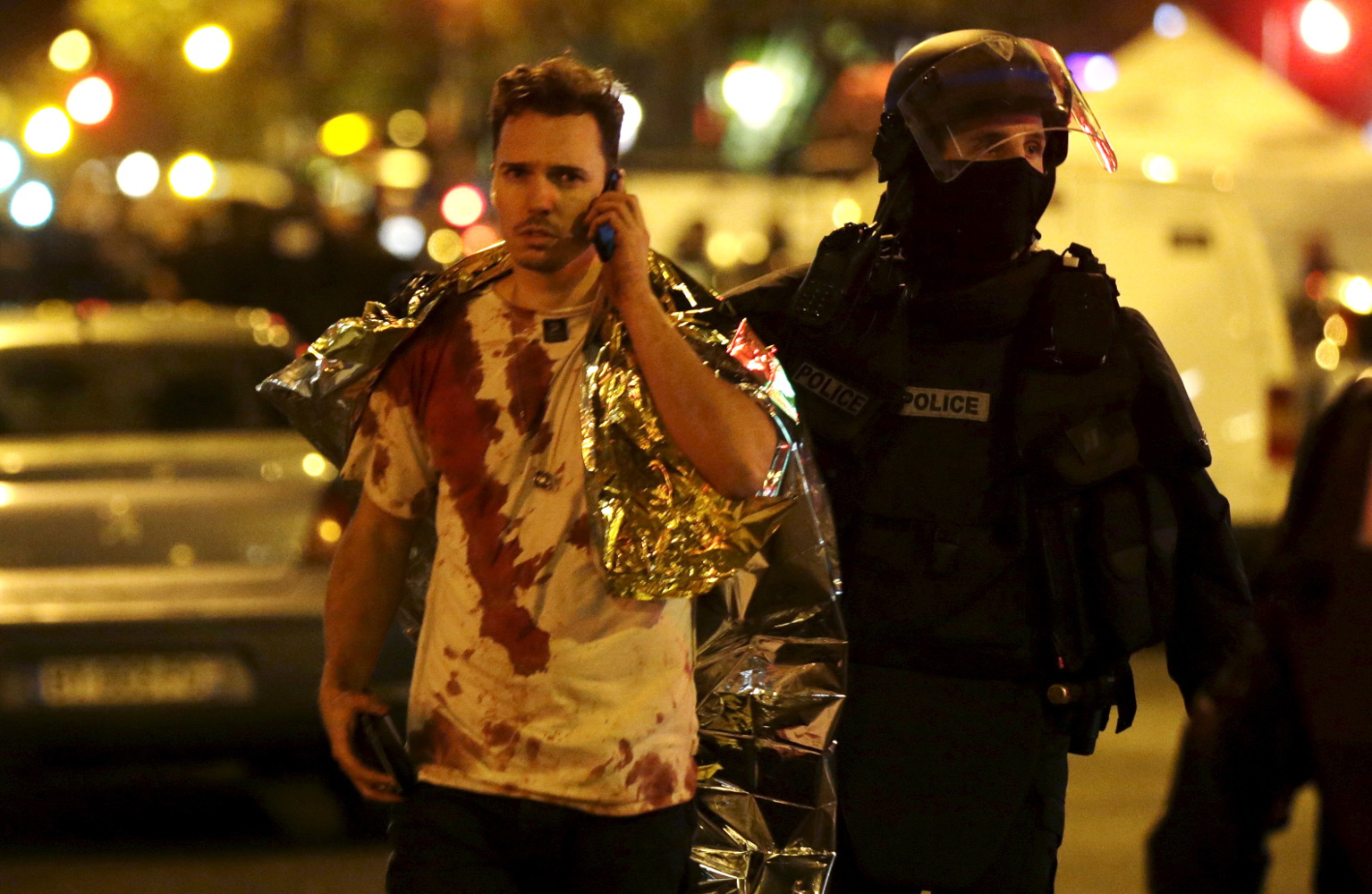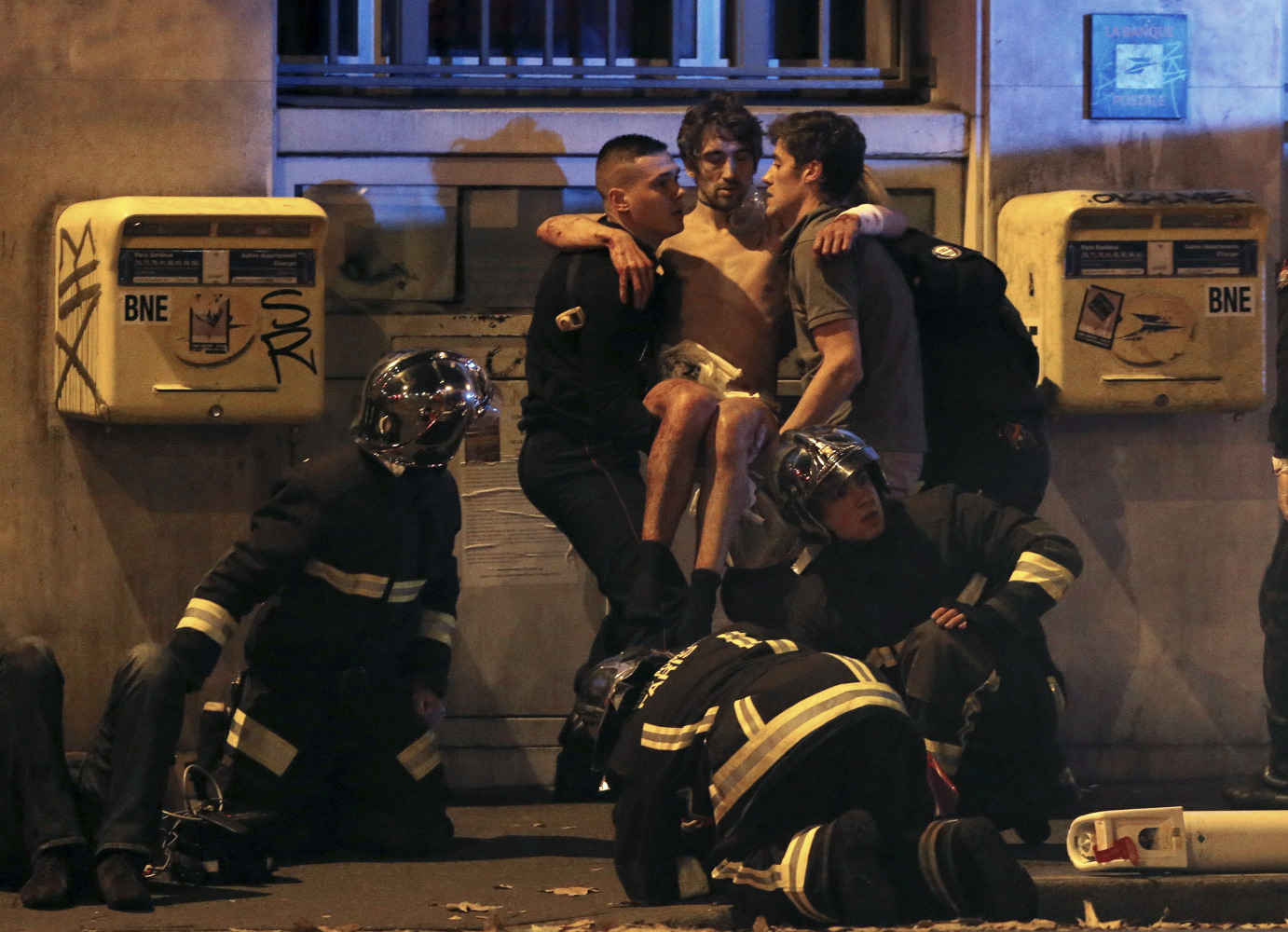Kenyan motorists drive in heavy traffic in the country's capital, Nairobi (Photo: AFP)
It should have been a Friday night like any other in central Paris, with locals and visitors alike watching a show, enjoying a meal or shrugging off the cares of the week over a drink.
But for the second time in less than a year, France and the world are asking how carnage could strike at the heart of this much-loved city, including at a concert hall barely a few hundred steps from January’s deadly attack on the satirical weekly Charlie Hebdo.
“As we went to our car we saw dozens of people running out of the Bataclan,” local resident Caterina Giardino, an Italian national, said of the 19th century theatre-turned-music venue where gunman clad in black systematically killed nearly 100.
“Many of them were covered with blood, people were screaming,” she added, sitting on a bench with a friend as she recalled how one young man emerged from the concert hall with the bloody imprint of a hand on his shirt.
The exact sequence of gun and bomb assaults on the concert hall, a sports stadium and restaurants in the French capital that left at least 120 dead is still unclear.
The first blast was heard at 9.17 pm local time outside the Stade de France national sports stadium, where France and Germany were playing a friendly soccer international in the presence of President Francois Hollande. Spectators distinctly heard a second detonation about two minutes later.
No claim of responsibility has been made so far, but witnesses at the Bataclan music venue heard the killers shout Islamic slogans and condemn France’s role in the US-led coalition fighting Islamic State in Syria.

Inside the hall, California-based rock band Eagles of Death Metal were on stage promoting their fourth album when the audience began to notice something was not right.
“I turned round and I saw one of these attackers, he was very young, barely 20, with a small beard,” Julien Pearce, a reporter for Europe 1 radio who was in the theatre said.
“At first we thought it was part of the show, pyrotechnics or whatever. But when I turned round and saw him with his assault rifle and saw flames coming from his barrel, I understood it was no joke,” he added.
As the gunman paused to reload, Pearce managed to sneak round the side of the stage and out through an exit. But witnesses described how others were not so lucky.
“People were falling like dominoes,” said a 22-year-old message-runner who gave his name as Toon. He had walked through the doors of the theatre just as three gunmen began shooting indiscriminately at those inside.
“One of the guys had a big hat. They were all dressed in black,” he said, adding that he turned on his heels and fled.
Early indications were that members of the band, formed in the late 1990s by lifelong friends Jesse Hughes and Josh Homme, were safe. Hughes’ mother, Jo Ellen Hughes, told a Reuters reporter outside her home in Palm Desert, California, that she had spoken to her son by telephone after the attack and that he was unhurt but “very upset and shaken.”
Outside the venue, there was panic. Paris police chief Michel Cadot told local television the gunman had sprayed the terraces of several nearby cafes with bullets before entering the hall.
One witness saw a man racing down a street outside screaming “War’s broken out!” A young Parisian said he and 60 others hid for an hour in the cellar of a bar on a street behind the theatre.
Emergency services were by now in full swing. Dozens of ambulances were racing to the Bataclan. Soldiers in camouflage fatigues were gathering on the nearby Bastille Square.

Shortly after midnight Paris time, a handful of loud bangs were heard coming from the theatre, not long after Hollande had issued a statement saying operations were under way to free those still in the theatre.
“The police assault was extremely difficult. The terrorists who locked themselves in one of the floor had explosives belts which they detonated, and the four were killed during the assault,” said Cadot.
Hollande was quick to declare a state of emergency after what he called a terrorist attack of unprecedented scale on French soil. The interior ministry declined to say whether there were further gunmen on the loose.
For his government, as for the French, the coming days are likely to raise as many questions as answers.
If the attack was linked to France’s role in Syria, why was it yet again targeted above other members of the US-led coalition?
Could the authorities, who already had the country on a heightened level of security and had promised improved surveillance after the Charlie Hebdo attacks, have done more to prevent this new assaults?
And will the French, who in January defiantly came out on the streets in their hundreds of thousands to mourn the Charlie Hebdo victims, have the courage to overcome their growing security fears and do the same a second time? (Additional reporting by Bate-Felix Tabe-Tabi and Ingrid Melander in Paris; Omar Younis in Palm Desert and Steve Gorman in Los Angeles; writing by Mark John; editing by Paul Taylor) – Reuters